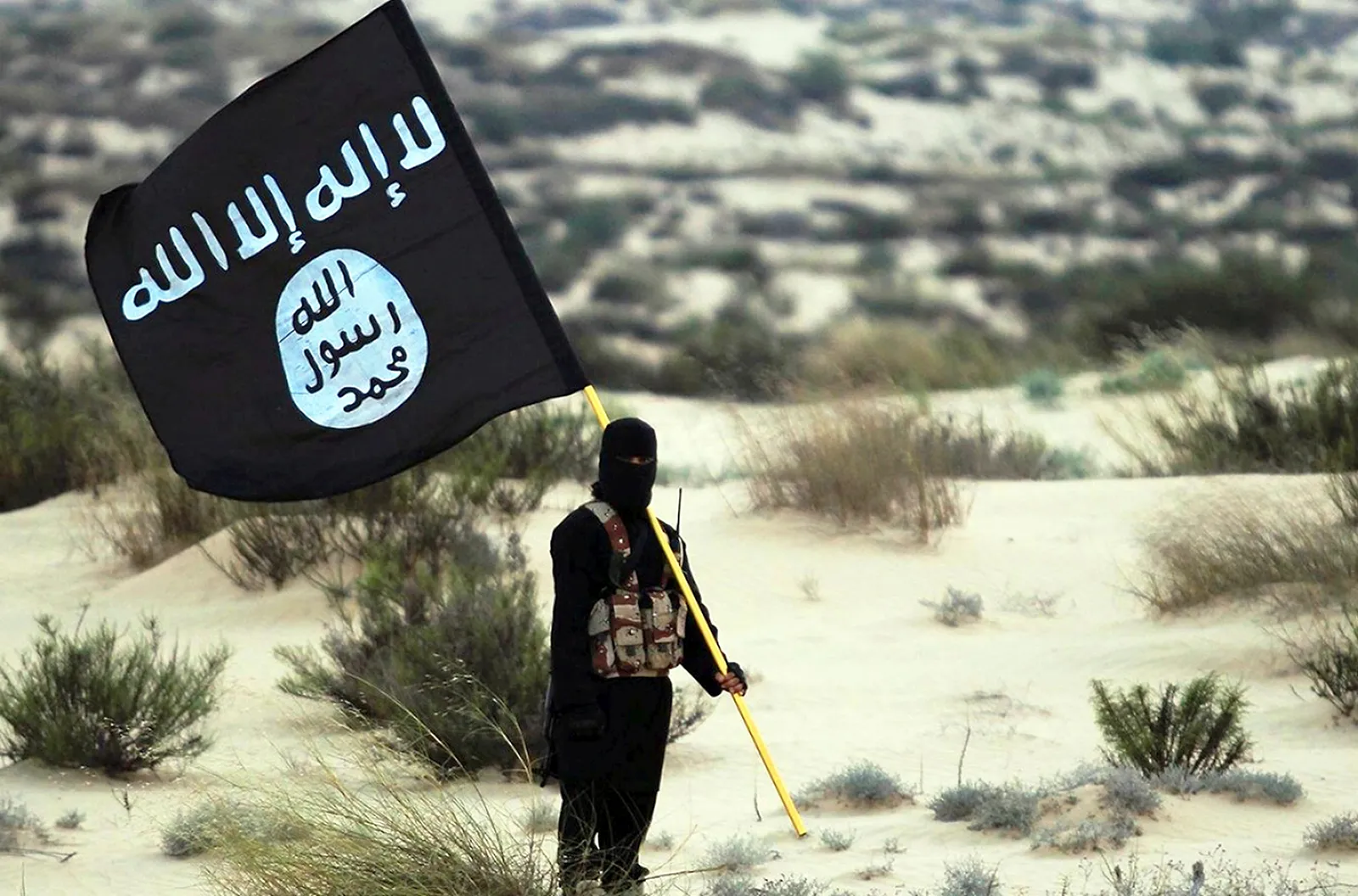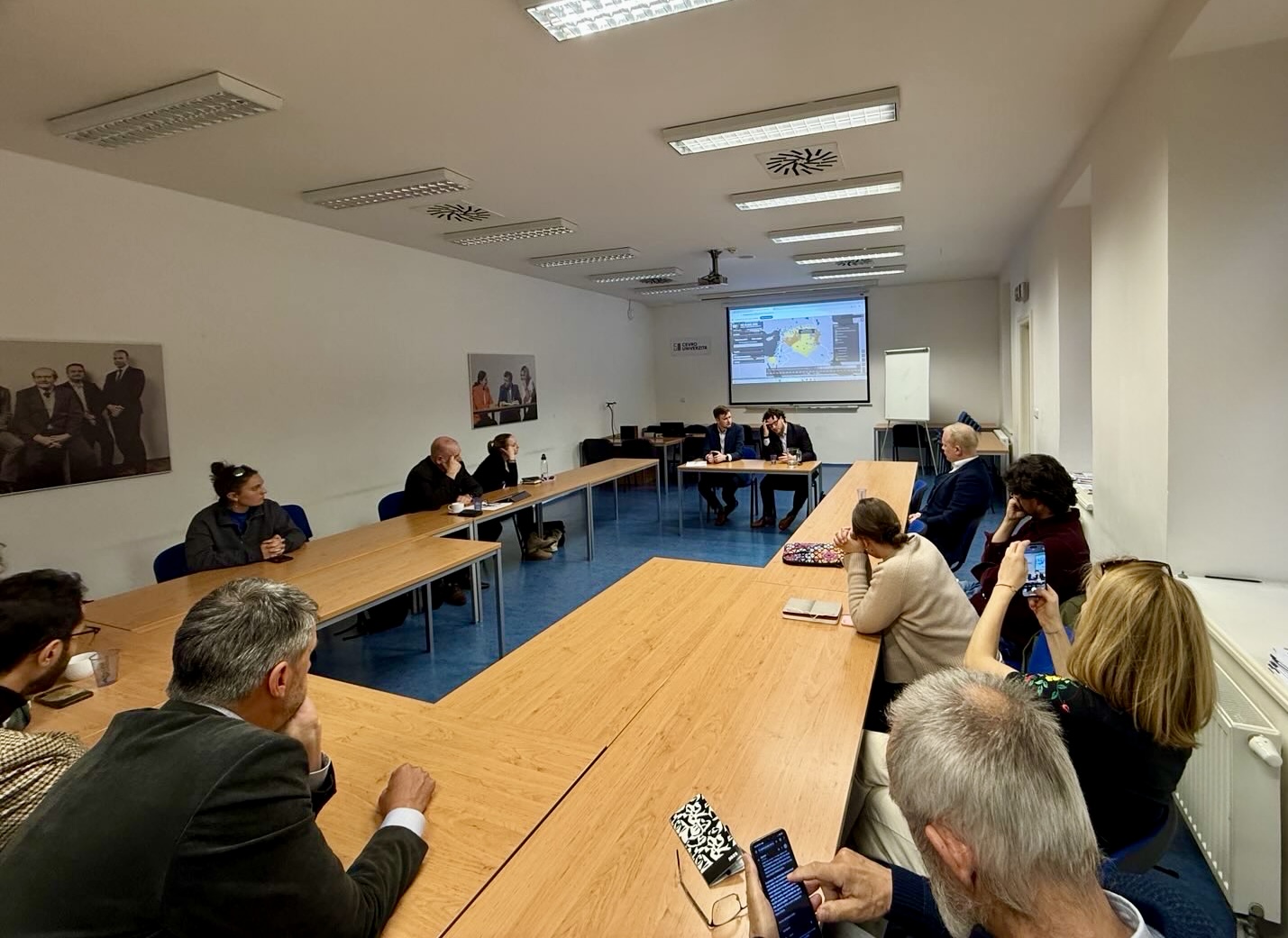Roundtable “From Insurgency to Governance: Sunni Jihadi Groups in a Changing Middle East”
Date of publication: April 11, 2025

On April 10, 2025, the Prague Center for Middle East Relations of CEVRO University hosted a closed roundtable entitled “From Insurgency to Governance: Sunni Jihadist Groups in a Changing Middle East” with Aaron Y. Zelin, an expert on Sunni jihadism in the Levant, Africa and Central Asia for the Washington Institute for Near East Policy, and director of the Islamic State Worldwide Activity Map platform.
Filip Sommer, Director of the PCMR, moderated the debate held under Chatham House Rules.
During this event, we focused in particular on the current state and activities of the Islamic State in Iraq and Syria (ISIS), whose remnants are still active in both countries. After the fall of the Bashar al-Assad regime on 8 December 2024, a security vacuum was created within central Syria, which was filled by ISIS fighters. However, there is now very little activity in either country, with Islamists undertaking only occasional insurgent incursions, particularly against security forces in rural areas. The discussion also focused on the current form of governance of Hayat Tahrir ash-Sham (HTS) in Syria and the organization’s attitude towards the remnants of ISIS jihadists. In this context, the issue of the continued presence of detained ISIS fighters and associated families with children in al-Hol and al-Roj camps was then addressed. These are under the control of the persistent Autonomous Administration in Northern and Eastern Syria (AANES) administered by the Syrian Democratic Council (SDC). Further, the debate revolved around the aforementioned HTS, its internal structure, and the main domestic and foreign challenges. Last but not least, the issue of foreign fighters and the overall level of stability in Syria was discussed, especially from a European and American perspective.
Background
In the aftermath of the ISIS territorial collapse in 2019 and amid realignments across the Middle East, Sunni jihadi and Islamist movements are undergoing complex transformations. While transnational groups like ISIS have fragmented or reverted to insurgency tactics, others – such as HTS, have entrenched themselves locally, pursuing hybrid strategies of governance and militancy, and evolving from a non-state armed group into a de facto governing authority.
At the same time, groups like the Muslim Brotherhood and Hamas move between politics and armed struggle, dealing with internal divisions and growing outside pressure in a region that is becoming more divided. These groups continue to adapt – ideologically, strategically, and structurally – shaped by state fragility, shifting alliances, and the broader currents of jihadist and Islamist activism.
Speaker’s Bio
Dr. Aaron Y. Zelin is the Gloria and Ken Levy Fellow at the Washington Institute for Near East Policy, where he also directs the Islamic State Worldwide Activity Map project. Zelin is also a Visiting Research Scholar in the Department of Politics at Brandeis University, Founder of the widely acclaimed website Jihadology, and a contributing writer for War on the Rock’s Adversarial newsletter. He is author of the book Your Sons Are At Your Service: Tunisia’s Missionaries of Jihad (Columbia University Press), which was nominated for the Neave Memorial Book Prize in 2020. Zelin is currently working on a second book tentatively titled Heartland of the Believers: A History of Syrian Jihadism.
Zelin’s research focuses on Sunni jihadi groups in the Levant, North Africa, the Sahel, and Afghanistan as well as the trends of jihadi governance, online mobilization, and foreign fighting. He has conducted field research in Tunisia, Turkey, Iraq, Lebanon, Palestine, and Israel. Zelin has also testified and served as an expert witness in front of the U.S. House of Representatives and with the Department of Justice in federal judicial terrorism trials.
He is the author of a number of reports including the January 2013 study The State of Global Jihad Online, the June 2014 study The War Between ISIS and al-Qaeda for Supremacy of the Global Jihadist Movement, the August 2015 study Picture Or It Didn’t Happen: A Snapshot of the Islamic State’s Official Media Output, the January 2016 study The Islamic State’s Territorial Methodology, the editor of the June 2017 study How al-Qaeda Survived Drones, Uprisings, and the Islamic State; the January 2018 study The Others: Foreign Fighters in Libya; the September 2018 study Tunisian Foreign Fighters in Iraq and Syria; the October 2019 study Wilayat al-Hawl: ‘Remaining’ and Incubating the Next Islamic State Generation; the February 2021 study Syria at the Center of Power Competition and Counterterrorism, the May 2022 study The Age of Political Jihadism: A Study of Hayat Tahrir al-Sham, the September 2023 study Exploiting a “Vast Jihad Arena”: The Islamic State Takes Territory in Mali, and most recently, coauthored with Institute colleague Devorah Margolin, the 2024 study Jihadist Government and Statecraft. Read more about him here.


